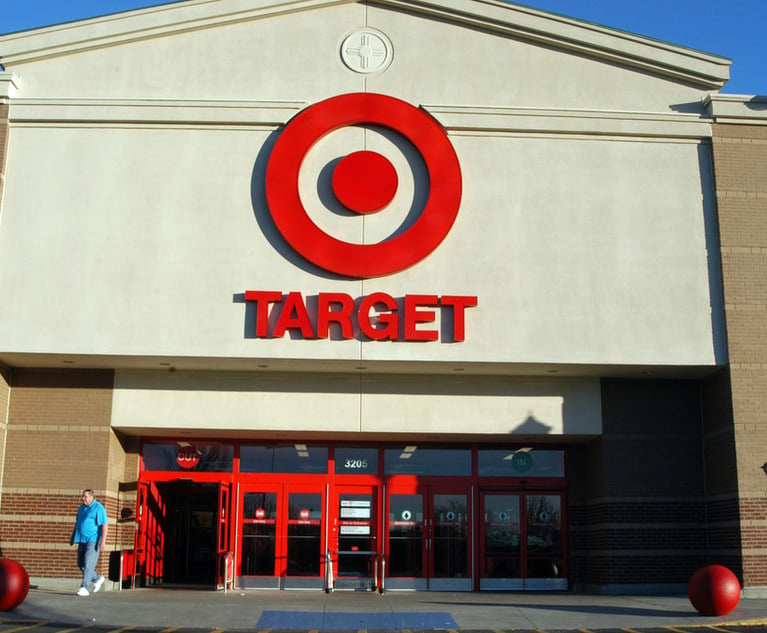 Credit: nikkimeel/Adobe Stock
Credit: nikkimeel/Adobe StockLawsuits Mount Over Moderna's RSV Vaccine
The newest case is the fifth to bring similar allegations against Moderna in the same court, with three others, all filed Nov. 5, surfaced by Law.com Radar.
November 13, 2024 at 02:09 PM
2 minute read
The stack of derivative actions against Moderna is growing in the District of Massachusetts, with the latest case challenging representations of the company's RSV vaccine's success filed on Nov. 12.
The case is the fifth to bring similar allegations against Moderna in the same court, with three others, all filed Nov. 5, surfaced by Law.com Radar.
Another was filed Oct. 28.
The Rosen Law Firm is representing plaintiffs in all five cases, with Bragar Eagel & Squire appearing alongside the firm in the most recently filed.
Rigrodsky Law and Grabar Law Offices are counsel in another, and Robbins LLP and Wolf Haldenstein Adler Freeman & Herz entered appearances in one case each.
The newest case has not been assigned to a judge, while U.S. District Judge Indira Talwani is overseeing the four earlier suits.
The litigation involves the development of mRESVIA, Moderna's vaccine aimed at protecting older adults from respiratory syncytial virus (RSV). Attorneys for the shareholder plaintiffs did not respond for comment.
In January 2023, Moderna, a Delaware corporation headquartered in Massachusetts, announced clinical trials showed mRESVIA was 83.7% effective against RSV-related lower respiratory tract disease.
In May of this year, Moderna announced a 78.7% efficacy rate, which was followed by a 5.9% drop in Moderna's stock price.
In June, the complaint stated, stock prices dipped another 11% after a presentation to a Centers for Disease Control and Prevention committee indicated mRESVIA was between 49.9% and 50.3% effective, "significantly lower than competing vaccines."
The complaint, which names eight causes of action, claims Moderna leadership failed to tell investors mRESVIA was less effective than originally represented.
It claimed the company breached its fiduciary duties by overstating prospects for the vaccine's clinical and commercial success between Jan. 18, 2023, the day after Moderna announced the results of a clinical trial, and June 25, 2024, the day before the presentation to the CDC committee.
It also alleges that as the result of Moderna's stock being artificially inflated, multiple board members who knew of the discrepancy profited from insider trading and Moderna overpaid $166.3 million for stock buybacks.
A spokesperson for Moderna did not immediately respond for comment.
NOT FOR REPRINT
© 2025 ALM Global, LLC, All Rights Reserved. Request academic re-use from www.copyright.com. All other uses, submit a request to [email protected]. For more information visit Asset & Logo Licensing.
You Might Like
View All
Securities Report Says That 2024 Settlements Passed a Total of $5.2B
3 minute read
Litigation Trends to Watch From Law.com Radar: Suits Strike at DEI Policies, 'Meme Coins' and Infractions in Cannabis Labeling
4 minute read
GOP-Led SEC Tightens Control Over Enforcement Investigations, Lawyers Say

Trending Stories
Who Got The Work
J. Brugh Lower of Gibbons has entered an appearance for industrial equipment supplier Devco Corporation in a pending trademark infringement lawsuit. The suit, accusing the defendant of selling knock-off Graco products, was filed Dec. 18 in New Jersey District Court by Rivkin Radler on behalf of Graco Inc. and Graco Minnesota. The case, assigned to U.S. District Judge Zahid N. Quraishi, is 3:24-cv-11294, Graco Inc. et al v. Devco Corporation.
Who Got The Work
Rebecca Maller-Stein and Kent A. Yalowitz of Arnold & Porter Kaye Scholer have entered their appearances for Hanaco Venture Capital and its executives, Lior Prosor and David Frankel, in a pending securities lawsuit. The action, filed on Dec. 24 in New York Southern District Court by Zell, Aron & Co. on behalf of Goldeneye Advisors, accuses the defendants of negligently and fraudulently managing the plaintiff's $1 million investment. The case, assigned to U.S. District Judge Vernon S. Broderick, is 1:24-cv-09918, Goldeneye Advisors, LLC v. Hanaco Venture Capital, Ltd. et al.
Who Got The Work
Attorneys from A&O Shearman has stepped in as defense counsel for Toronto-Dominion Bank and other defendants in a pending securities class action. The suit, filed Dec. 11 in New York Southern District Court by Bleichmar Fonti & Auld, accuses the defendants of concealing the bank's 'pervasive' deficiencies in regards to its compliance with the Bank Secrecy Act and the quality of its anti-money laundering controls. The case, assigned to U.S. District Judge Arun Subramanian, is 1:24-cv-09445, Gonzalez v. The Toronto-Dominion Bank et al.
Who Got The Work
Crown Castle International, a Pennsylvania company providing shared communications infrastructure, has turned to Luke D. Wolf of Gordon Rees Scully Mansukhani to fend off a pending breach-of-contract lawsuit. The court action, filed Nov. 25 in Michigan Eastern District Court by Hooper Hathaway PC on behalf of The Town Residences LLC, accuses Crown Castle of failing to transfer approximately $30,000 in utility payments from T-Mobile in breach of a roof-top lease and assignment agreement. The case, assigned to U.S. District Judge Susan K. Declercq, is 2:24-cv-13131, The Town Residences LLC v. T-Mobile US, Inc. et al.
Who Got The Work
Wilfred P. Coronato and Daniel M. Schwartz of McCarter & English have stepped in as defense counsel to Electrolux Home Products Inc. in a pending product liability lawsuit. The court action, filed Nov. 26 in New York Eastern District Court by Poulos Lopiccolo PC and Nagel Rice LLP on behalf of David Stern, alleges that the defendant's refrigerators’ drawers and shelving repeatedly break and fall apart within months after purchase. The case, assigned to U.S. District Judge Joan M. Azrack, is 2:24-cv-08204, Stern v. Electrolux Home Products, Inc.
Featured Firms
Law Offices of Gary Martin Hays & Associates, P.C.
(470) 294-1674
Law Offices of Mark E. Salomone
(857) 444-6468
Smith & Hassler
(713) 739-1250








